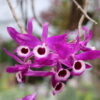The Importance of Herbs in Chinese Cuisine: A Deep Connection to Health and Flavor

Chinese cuisine is renowned for its balance, flavor complexity, and health benefits, and at the heart of this lies an often underappreciated element: herbs. For thousands of years, herbs have been an essential component of Chinese cooking, serving not only as seasonings and flavor enhancers but also as key ingredients in Traditional Chinese Medicine (TCM). The strategic use of herbs in Chinese cuisine helps maintain harmony in the body and aligns with the holistic approach of TCM, which seeks to balance the body’s internal energies and promote long-term well-being.
In this article, we will delve into the significance of herbs in Chinese cooking, exploring their health benefits, the cultural and medicinal roles they play, and the way they enhance the flavor profile of dishes. From the calming effects of chrysanthemum to the invigorating properties of ginseng, Chinese herbs are far more than culinary additions—they are integral to achieving a balanced, nourishing diet. Whether used in soups, teas, or stir-fries, herbs are the key to unlocking the full potential of Chinese cuisine’s healthful qualities.
1. A Holistic Approach: Herbs in Traditional Chinese Medicine
Traditional Chinese Medicine, which dates back over 2,000 years, emphasizes balance and harmony within the body. TCM’s core principles involve the balance of Yin and Yang, the flow of Qi (vital energy), and the regulation of the five elements (wood, fire, earth, metal, and water). This holistic system of health is not just concerned with treating illnesses but also with preventing them by promoting harmony between the body, mind, and environment.
Herbs are integral to TCM, where they are used to restore balance and support the body’s natural healing processes. In Chinese cooking, many of the herbs used are thought to possess specific properties that can influence the body’s internal balance. For example, certain herbs are considered “cooling” and are used to alleviate heat in the body, while others are “warming” and are used to enhance circulation and boost energy.
By understanding the medicinal properties of herbs, Chinese chefs can craft dishes that nourish the body while providing deep, complex flavors. Whether seeking to tonify the body, clear toxins, boost energy, or improve digestion, herbs are selected based on their unique qualities and their effects on the body’s systems.
2. The Role of Herbs in Enhancing Flavor
Beyond their health benefits, herbs in Chinese cuisine are also used to elevate flavor profiles. The Chinese culinary tradition places a strong emphasis on achieving the “five tastes” of sweet, sour, salty, bitter, and umami, and herbs play a significant role in balancing these flavors. They are often combined with other ingredients such as spices, soy sauce, vinegar, and sugar to create a harmonious and well-rounded taste.
For example, the herb ginger (姜) is a common ingredient in Chinese cooking, known for its sharp, spicy flavor. It not only enhances the taste of many dishes but also provides warmth, making it ideal for dishes like stir-fries, broths, and teas. Ginger is often used in tandem with garlic (大蒜), another potent herb, to create a base of flavor in numerous Chinese dishes, particularly in stir-fries, dumplings, and sauces.
Chinese Five-Spice Powder, which includes star anise, cloves, Chinese cinnamon, Sichuan peppercorns, and fennel seeds, is another blend of herbs and spices frequently used in Chinese cuisine. The combination of sweet, spicy, and savory notes creates a uniquely Chinese flavor profile that is aromatic and deeply satisfying. The blend’s use in everything from roasted meats to stews showcases how Chinese chefs expertly balance herbs to enhance not just taste but also the overall experience of a dish.
3. Herbs for Healing: Key Medicinal Herbs in Chinese Cuisine
Chinese cuisine is not only about taste—it is deeply intertwined with health practices. Many herbs used in cooking also serve medicinal purposes. Some of the most famous herbs found in Chinese kitchens and their health benefits include:
Ginseng (人参)
One of the most well-known herbs in both Chinese cuisine and medicine, ginseng is considered a powerful tonic that boosts energy and vitality. It is often used in soups, teas, and broths, particularly for those recovering from illness or in need of an energy boost. Ginseng is believed to tonify the Qi, improve mental clarity, enhance immune function, and promote overall vitality. Its invigorating properties make it a popular ingredient in herbal teas and in dishes like ginseng chicken soup (人参鸡汤), which is often served as a restorative meal.
Goji Berries (枸杞)
These small red berries, also known as wolfberries, are commonly used in Chinese cooking and are valued for their health benefits. Goji berries are packed with antioxidants, vitamins A and C, and minerals such as iron and zinc. They are believed to improve vision, promote longevity, and strengthen the immune system. Goji berries are often added to soups, teas, and even desserts like goji berry soup or goji berry porridge, where their mild sweetness complements the overall flavor profile.
Chrysanthemum (菊花)
Chrysanthemum is an essential herb in Chinese cuisine, especially in the preparation of teas and soups. The flowers have cooling properties and are used to clear heat from the body, reduce inflammation, and promote relaxation. Chrysanthemum tea is a popular drink in China, especially during the hot summer months, as it helps cool the body and soothe the mind. The herb is also thought to be good for the eyes, and it is often used to alleviate eye fatigue or improve vision.
Angelica Root (当归)
Angelica root, also known as dong quai, is often referred to as “female ginseng” due to its benefits for women’s health. It is used to improve circulation, balance hormones, and support the reproductive system. Angelica root is frequently used in herbal soups and broths, such as in Angelica Chicken Soup, to promote overall health, vitality, and a balanced hormonal system. Its subtle flavor enhances the depth of broths and stews.
Astragalus (黄芪)
Astragalus is another important herb in Chinese medicine that is often used in soups and stews. Known for its immune-boosting properties, astragalus helps to increase the body’s resistance to stress and illness. It is often used in combination with other herbs to fortify the body’s defenses and improve overall vitality. Astragalus is commonly added to herbal chicken soup or bone broth, where its earthy flavor complements the richness of the soup base.
Chinese Date (枣)
Chinese dates, or jujube, are used in many traditional Chinese dishes for their sweet flavor and medicinal properties. Rich in vitamins and minerals, they are believed to tonify the blood, improve digestion, and support the immune system. Jujube is commonly used in soups, porridge, and teas, particularly in the winter months to nourish the body and boost energy.
4. How Herbs Are Incorporated into Chinese Cooking
Herbs in Chinese cooking are used in a variety of ways to enhance both flavor and health benefits. Some common methods of using herbs in Chinese cuisine include:
- Soups and Broths: Chinese herbal soups are a popular way to incorporate herbs into daily meals. These soups are often simmered for hours to extract the medicinal properties of the herbs. Ingredients like ginseng, goji berries, angelica root, and astragalus are added to chicken, pork, or beef broths to create nourishing and healing meals. These soups are believed to strengthen the body and enhance vitality.
- Stir-fries: Stir-frying is one of the most common cooking techniques in Chinese cuisine. Herbs like ginger, garlic, and cilantro are often added to stir-fried dishes to impart fresh, aromatic flavors that balance the richness of proteins and vegetables. The quick cooking process helps retain the herbs’ natural flavor and medicinal properties.
- Teas: In addition to soups and stir-fries, Chinese herbs are often brewed into teas. Herbal teas like chrysanthemum tea, goji berry tea, and ginger tea are consumed for their cooling, digestive, and immune-boosting properties. Tea is an integral part of Chinese culture and is often enjoyed throughout the day, offering both hydration and health benefits.
- Dumplings and Porridges: Chinese dumplings and porridge can also feature medicinal herbs. For example, congee (rice porridge) is frequently made with herbs like jujube and ginseng, while herbal dumplings can be filled with ingredients like angelica root and Chinese dates, creating a flavorful and health-enhancing meal.
5. The Modern-Day Relevance of Herbs in Chinese Cooking
In today’s world, as people become increasingly health-conscious, the use of herbs in Chinese cooking remains as relevant as ever. Whether it’s through the consumption of herbal teas to detoxify the body or the use of ingredients like goji berries and ginseng to boost energy levels, Chinese herbs continue to be a cornerstone of both traditional and modern culinary practices. Many contemporary Chinese chefs are reviving and modernizing the use of herbs in their dishes, incorporating these ancient ingredients into gourmet meals to address modern health concerns like stress, fatigue, and poor digestion.
Furthermore, as people around the world begin to embrace the wellness benefits of Chinese herbs, these ingredients are making their way into international kitchens, introducing a global audience to the power of Chinese culinary traditions. Whether for their medicinal properties or their ability to elevate flavor, Chinese herbs continue to shape the landscape of global cuisine.
Conclusion
Herbs in Chinese cuisine are far more than simple flavorings; they are an integral part of the culture, philosophy, and health traditions of China. Through their medicinal properties and ability to balance the body’s internal energies, herbs have become essential in both traditional
and modern Chinese cooking. From ancient healing practices to contemporary culinary innovations, herbs remain a cornerstone of Chinese cuisine, providing nourishment, wellness, and flavor.

